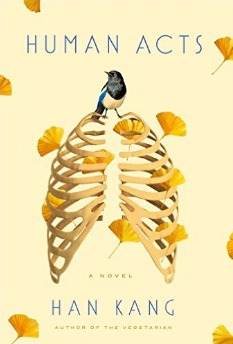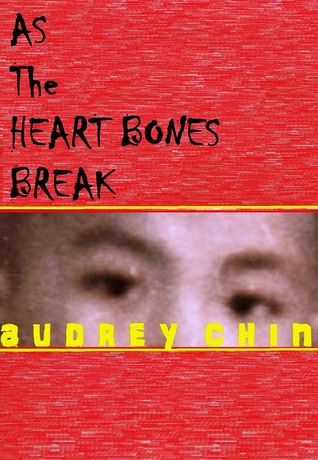Choosing Historical Fiction: South/East-Asian Recommendations
Unintentionally, my previous recommendations included historical fiction that focused on Caucasian experience in North America as well as historical fiction that takes place in Europe. I didn't include wonderful historical fiction that takes place elsewhere and in this list, in no particular order, I will recommend literature that is focused in Southeast/East Asia.
(For those who are wondering, I am not yet qualified to make recommendations that take place in Africa, Central and South America as well as other parts of the world.) I wanted to do 5 books that I enjoyed the most, but realized that I enjoyed 6 books instead of 5. In no particular order,
Summary:
"This coming-of-age story chronicling a Filipino boy's wrenching passage from son of privilege to guerilla fighter is a stylistic tour-de-force. From its first lines, the saga of Jando Flores seizes readers with the same chilling intensity as the cold water that wraps around Jando's chest as he hides in a river to escape a gang of pillaging cutthroats. While such murderous militias dispossess cane farmers in the Central Plains of the Philippines, the NPA (a brutal leftist insurgency) combats the government troops of Ferdinand Marcos and the ruthless sugar barons who steal the poor farmers' land. Jando, whose family owns a plantation, is forced into the NPA, but he remains a sensitive soul, brimming with empathy for his fellow countrymen-even as he watches others, like his beloved uncle, morph into fierce, sadistic killers. Incandescent descriptions radiate from the pages of this book. When a wounded Jando wakes, after narrowly escaping a death squad, he sees "marmalade light slicing through the fronds, weaving orange and black tiger stripes." Mountain bandits, sugar warlords, Peace Corps volunteers, dignitaries, and revolutionaries all jostle beneath "mango-colored" skies in this riveting epic of loss and transformation, but it is a masterful and delicate choreography. "
Why I love it:
It has been awhile since I read the book, but these are the things that stand out in my mind about it: the vivid and memorable details to the scenes that the author pays attention to; I also loved the main character of Jando and also enjoyed learning more about history of Philippines. If you are looking to see what it's like living a life of an unwilling soldier, or just want to know more about Philippines, it's not a book to be missed.
Summary:
From the internationally bestselling author of The Vegetarian, a rare and astonishing (The Observer) portrait of political unrest and the universal struggle for justice.
In the midst of a violent student uprising in South Korea, a young boy named Dong-ho is shockingly killed.
The story of this tragic episode unfolds in a sequence of interconnected chapters as the victims and the bereaved encounter suppression, denial, and the echoing agony of the massacre. From Dong-ho's best friend who meets his own fateful end; to an editor struggling against censorship; to a prisoner and a factory worker, each suffering from traumatic memories; and to Dong-ho's own grief-stricken mother; and through their collective heartbreak and acts of hope is the tale of a brutalized people in search of a voice.
An award-winning, controversial bestseller, Human Acts is a timeless, pointillist portrait of an historic event with reverberations still being felt today, by turns tracing the harsh reality of oppression and the resounding, extraordinary poetry of humanity.
Why I Love it:
I admit that it has been more of a recent read, but its really haunting about how one night affects the rest of people's lives. Because I have a big interest in South Korea, the story of Gwangju Massacre is not new to me. But the brutality and ugliness is new, and its not a book that will soon get out of my head.
Summary:
In Thong Tran's Vietnam, everyone is at war and no one is who they seem not his adopted father, a French civil servant, not his Blood Father, the Viet Cong rooster master, not his pro-American journalist tutor. Like them, the boy from the Mekong Delta cannot escape the war. And like them, he too must create shades of himself to survive. But even a conflicted heart needs a home. Thong yearns for a true father and a cause to give himself to. He chooses independence, liberty and happiness his tutor and the Viet Cong. Tragically, there s no independence, liberty or happiness at war s end. Re-invented as an American aerospace engineer, husband and father the Viet Cong informer must spend another half a lifetime crossing the Pacific as a defense industry dealmaker before he can set down the bones rankling in his heart.
Why I love it:
Although I hated the main character and the double-dealing he has done, his psychology and how he develops during the Vietnamese War is far more intriguing than I thought. For seeing humanity at its worst during the war, do give the book a chance.
Summary:
A lush, exquisitely rendered meditation on war, The Gods of Heavenly Punishment tells the story of several families, American and Japanese, their loves and infidelities, their dreams and losses, and how they are all connected by one of the most devastating acts of war in human history.
In this evocative and thrilling epic novel, fifteen-year-old Yoshi Kobayashi, child of Japan’s New Empire, daughter of an ardent expansionist and a mother with a haunting past, is on her way home on a March night when American bombers shower her city with napalm—an attack that leaves one hundred thousand dead within hours and half the city in ashen ruins. In the days that follow, Yoshi’s old life will blur beyond recognition, leading her to a new world marked by destruction and shaped by those considered the enemy: Cam, a downed bomber pilot taken prisoner by the Imperial Japanese Army; Anton, a gifted architect who helped modernize Tokyo’s prewar skyline but is now charged with destroying it; and Billy, an Occupation soldier who arrives in the blackened city with a dark secret of his own. Directly or indirectly, each will shape Yoshi’s journey as she seeks safety, love, and redemption.
Why I love it:
There was something about the story that made it feel almost movie-like, and I also liked how at the end this diverse cast of people become connected to one another. While on a journey, prepare to learn about Japan before WWII through the eyes of two women and prepare to also learn about the bombing which is not as talked about as Hiroshima and Nagasaki, but is just as bad and deadly.
Summary:
Alone in exotic Chungking, beautiful foreign correspondent Stephanie Ryder is warned to keep silent about the atrocities she witnesses in the city’s teeming slums. Defying a brutal Kuomintang officer, she is swept to an electrifying first meeting with Dr. Jen Yong, a handsome, dedicated and compassionate Chinese surgeon. For Yong, a sexual liaison with an American woman could mean a death sentence. For Stephanie, an affair with an Asian man would cause an irreparable breach with her Texas millionaire father. But just when danger threatens to separate them forever, their passion bursts into flame…and carries them on a fabulous romantic journey from the stormy depths of fear and desire, to the moving affirmation that enduring love is truly a many-splendored thing.
Why I Love it:
Prior to reading this book, I never figured that Asian men/white women couples could be seen as "normal" and that they could share long life together. It's also the first time I feel that I saw myself as a heroine rather than a bystander. Besides that, its good for learning Chinese history from WWII to early 1980s
Summary:
Debut novelist Takashi Matsuoka burst onto the secen with CLOUD OF SPARROWS, a magnificent historical novel that takes us beyond the epic tradition of James Clavell’s Shogun. Set in 1861 Japan, CLOUD OF SPARROWS weaves a tale of passion and adventure, as a small group of American missionaries arrives on the shores of Edo Bay-and enters the strange, exotic world of Genji, Lord of Akaoka. What happens next, between the handsome young nobleman and the two Americans, sets the stage for a remarkable adventure. For as this unlikely band embarks on a journey through a landscape bristling with danger, East and West, flesh and spirit, past and future, collide in an ovel of astounding power and grace…
Why I Love it:
For people who got complaints about James Clavell novels (yes, I've read about 3 or 4 when I was in high school) or for people who enjoy James Clavell, this is an excellent alternative. I loved learning about Japan of 1860s, loved seeing Americans and Japanese, men and women drawn memorably and with a lot of complexity to where they came from.



Comments
Post a Comment